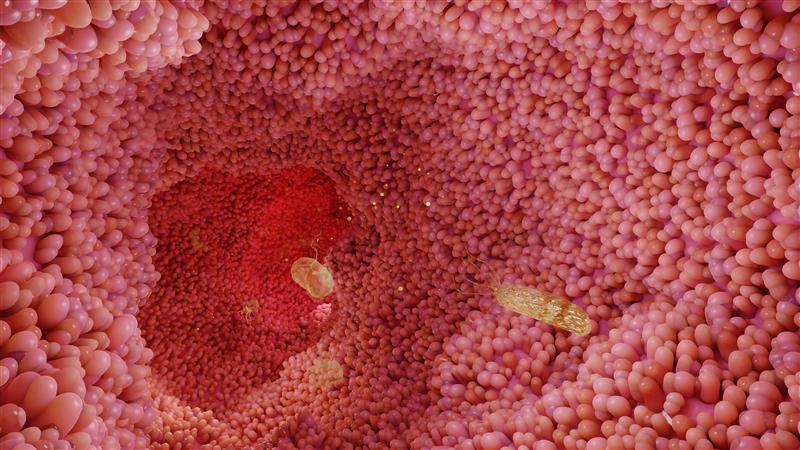Research increasingly focuses on how the gut microbiome—the collection of microbes in our digestive system—develop, change and contribute to health. Investigators at the ACNC, led by Dr. Umesh Wankhade, used a mouse model to explore how a maternal diet, consumed before and during pregnancy, affects the gut microbiome of the following generation. Specifically, their team examined whether a high-fat diet, fed to moms during preconception and pregnancy, affects the gut microbiome of their offspring, particularly if the offspring consume a HF diet themselves.
In their study, the offspring born to mothers who consumed a high-fat diet had reduced gut bacterial diversity, a sign of a less healthy gut, compared to offspring born to mothers who consumed the control diet. Gut bacterial diversity was particularly reduced in male offspring who were weaned onto a high-fat diet.
Maternal high-fat diet impacted bacterial community composition in a sex-specific manner, with female offspring showing higher levels of Corynebacterium and male offspring having lower levels of beneficial bacteria, like Akkermansia and Roseburia. These findings highlight the complex, sex-dependent ways maternal diet can influence gut health in their offspring. What’s more, it suggests a mechanism for which material diet may potentially contribute to obesity and metabolic diseases in the next generation.
Check out the paper here.

